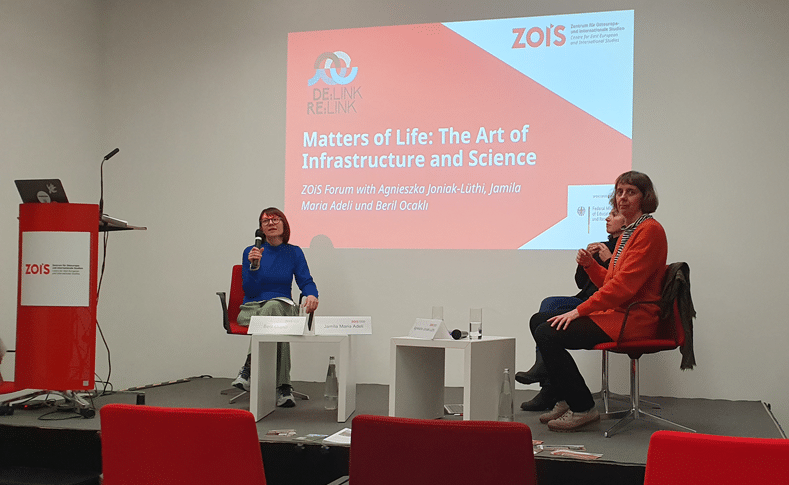On 28
November 2023, a World Café followed by a ZOiS Forum took place at the Centre
for East European and International Studies (ZOiS).
At the
World Café entitled „New Insights about the Belt and Road from (Eur)Asia to
(East)Africa: Strategies, Narratives and Reactions“ (organized by PI Julia
Langbein) scholars from all four research consortium partners presented results
from their individual research projects regarding new insights and local
perspectives on the BRI. Intensive discussions were held with the participants
at five different tables that had different regional and thematic focuses. For
more information about the tables’ topics, please refer to the World Café
announcement: https://www.delink-relink.de/2023/11/08/matters-of-life-the-art-of-infrastructure-and-science/.
Following
the World Café, Agnieszka Joniak-Lüthi (University of Fribourg, CH) and Jamila
Adeli (HU Berlin) gave presentations in the ZOiS Forum entitled „Matters of
Life: The Art of Infrastructure and Science“ and discussed together with the
organizer of the ZOiS Forum, Beril Ocaklı, and the audience about
infrastructure and arts as mediators and transmitters, object of research, and
tool of propaganda in connection with the BRI.
After the presentations,
there was first a discussion about why infrastructure has become such a popular
concept in recent years. Both the social sciences and the humanities seem to
have an increased interest in defining structures both as enabling and
preventing interfaces and in integrating these as levels of analysis into their
questions. This raised the important question of the extent to which these
developments point to a depoliticising analytical stance that obscures rather
than highlights particularities in the globalisation discourse.
Inspired by
Jamila Adeli’s presentation, the topic of art as a (de)constructing lens was
discussed in greater depth and with great interest: Why is the art movement of
social realism reappearing in the Chinese present, what are the historical
references, and what goals is the Chinese central government pursuing with it? The
role of the state as a cultural policy actor was placed in the context of post-
and neo-colonial issues and discussed in a stimulating manner on the basis of
contributions from the audience.
We thank
the organizers and all participants for the fruitful exchange and discussion!

